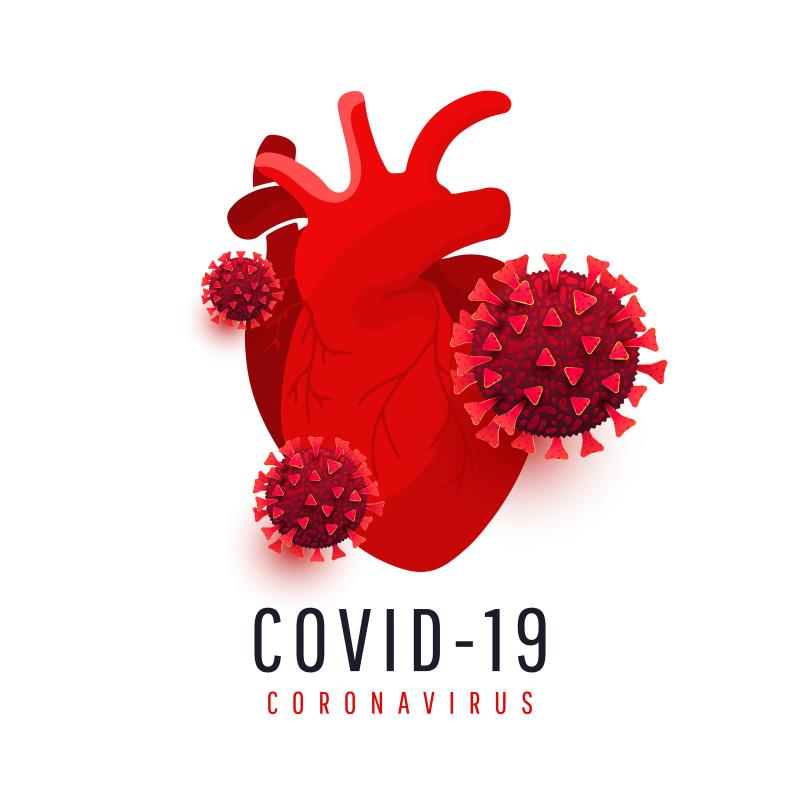
There is currently no definite evidence showing that two classes of antihypertensive medications — ACE inhibitors and ARBs* — are linked to increased risk of COVID-19 infection, leading experts say. On the contrary, what is clear is that stopping these medications simply because of concern over their perceived theoretical risk can come at a price of adverse cardiovascular (CV) events.
“Any resulting destabilizing of blood pressure control in hypertension, which might possibly occur with medication changes, would carry unacceptable risks of precipitating strokes and heart attacks, risks which clearly are not just hypothetical,” wrote a panel of three experts led by Professor Jan Danser of Erasmus University Medical Center in Rotterdam, the Netherlands, in a review paper. [Hypertension 2020;doi:10.1161/HYPERTENSIONAHA.120.15082]
“Simply discontinuing antihypertensive agents is strongly discouraged and should not be an option,” they stressed.
The hypotheses
Reports that hypertension was the most common coexisting condition in COVID-19 patients have sparked concerns that the use of antihypertensive medications which inhibit the renin–angiotensin–aldosterone system (RAAS) could increase the risk of coronavirus infection.
This notion came about because ACE2 serves as a receptor for coronavirus entry into cells. Part of the confusion arises because ACE is confused with ACE2. However, ACE and ACE2 are two different enzymes and hence, ACE inhibitors do not inhibit ACE2.
Another hypothesis is that the use of ACE inhibitors and ARBs could increase the expression of ACE2 and facilitate viral entry to the host. However, whether RAAS inhibition would increase ACE2 levels remains inconclusive, with conflicting findings in preclinical and animal models and limited data in human.
To confound the matter further, the effects of RAAS inhibitors on ACE2 levels may vary depending on tissue and clinical state, as well as between different drug classes, or even within a given drug class. Even if RAAS inhibitors can increase ACE2 levels, whether this will translate to greater infectivity of the virus is unknown.
“The data in humans are too limited to support or refute these hypotheses and concerns,” wrote experts led by Professor Scott Solomon of Brigham and Women's Hospital in Boston, Massachusetts, US, in a special report. [N Engl J Med 2020;doi:10.1056/NEJMsr2005760]
“More relevant, the significance of ACE2 expression on COVID-19 pathogenesis and mortality is not specifically known,” pointed out Drs Ankit Patel and Ashish Verma, also from Brigham and Women’s Hospital, in an opinion column in JAMA. [JAMA 2020;doi:10.1001/jama.2020.4812]
Experts also took issues with the lack of adjustment for potential confounders — such as age — in previous reports which showed increased mortality and morbidity in COVID-19 patients with hypertension. [JAMA Intern Med 2020;doi:10.1001/jamainternmed.2020.0994; Lancet 2020;doi:10.1016/S0140-6736(20)30566-3]
“These [co-existing] conditions [entailing the use of RAAS Inhibitors] appear to track closely with advancing age, which is emerging as the strongest predictor of COVID-19–related death,” noted Solomon and co-authors.
Flip side of the coin
Rather than harm, some preclinical studies have suggested a potential protective benefit of elevated ACE2 expression against lung injury.
During acute lung injury, ACE2 appeared to be downregulated in the alveolar cells. Such was the observation in a lung injury model in mice challenged by the SARS virus, which showed that decreased ACE2 led to worsened lung injury that was reversed by treatment with ARB. [Nat Med 2005;11:875-879]
Preclinical models of infections by other virus have similarly shown that restoration of ACE2 levels appeared to reverse lung injury induced by the infections. [Nat Commun 2014;5:3594; Sci Rep 2016;6:19840]
Nonetheless, there is no direct evidence thusfar to prove the efficacy of ACE2 for viral-induced lung injury, let alone the role of ACE inhibitors or ARBs in alleviating the severity of lung injury by SARS-CoV-2.
“Clinical trials are under way to test the safety and efficacy of RAAS modulators, including recombinant human ACE2 and the ARB losartan in COVID-19,” pointed out Solomon and co-authors.
Clear harm of withdrawal
“Despite these theoretical uncertainties regarding whether pharmacologic regulation of ACE2 may influence the infectivity of SARS-CoV-2, there is clear potential for harm related to the withdrawal of RAAS inhibitors in patients in otherwise stable condition,” highlighted Solomon and colleagues.
RAAS inhibitors have established protective benefits for the heart and kidney in patients with underlying CV diseases. As such, their withdrawal may risk damage to these organs, especially in high-risk patients.
“We therefore strongly recommend that patients who are taking ACE inhibitors or ARBs for high blood pressure, heart failure, or other medical indications should not withdraw their current treatment regimens unless they are specifically advised to do so by their physician or healthcare provider,” urged Danser and co-authors.
This position, first made by the European Society of Cardiology, was quickly echoed by major cardiology bodies around the world, including the AHA, ACC, and HFSA***.
“There are some concerns that these agents, particularly ARBs, can affect the expression of ACE2 based on animal models that, however, have not been challenged with coronavirus infection to evaluate the impact of RAAS blocker therapy,” wrote Danser and colleagues. “Based on the currently available evidence, treatment with RAAS blockers should not be discontinued because of concerns with coronavirus infection.”
“Their therapeutic benefit, in our opinion, outweighs any potential risk of them predisposing to corona infection. Moreover, it is unknown whether alternative antihypertensives do not carry the same risk,” they stated.
Changes in antihypertensive medications would require patients to visit their pharmacy and possibly obtain blood work, which would increase their exposure and risk of infection.
“Antihypertensive medication changes between classes additionally require frequent dose adjustment and management of adverse effects and increases the risk of medical errors,” according to Solomon and colleagues.
“In particular, Asian people seem to be more prone to cough, and therefore, ARBs may be preferable,” Danser and co-authors suggested.
“We see no reason to abandon or discontinue temporarily the use of RAAS blockers preventatively in SARS-CoV-2 patients,” they concluded.